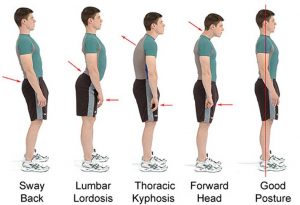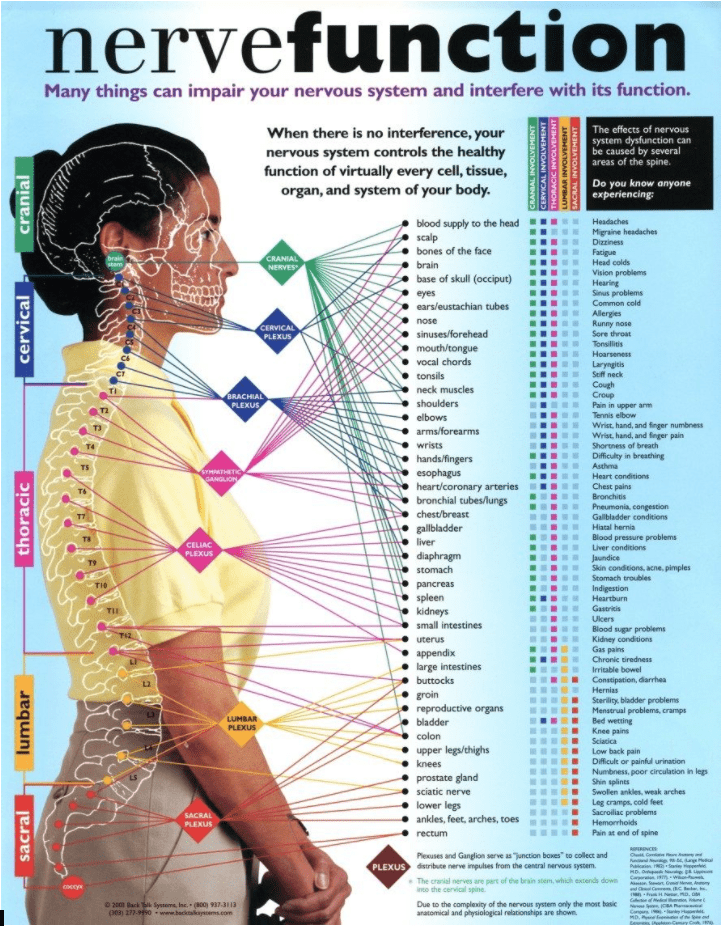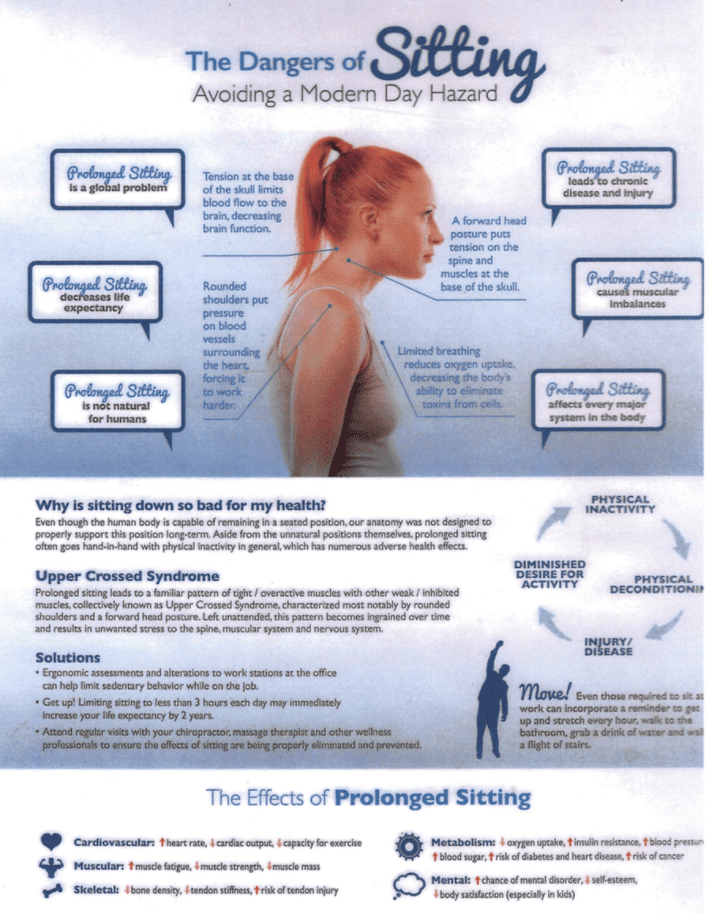Spine Health

“Your posture follows you like a shadow, and it has a ripple effect into everything you do – how you walk, stand, breathe, and train.”
– Jill Miller
Today’s Teaching Video from Dr. Cameron Piechocinski D.C.:
Homework:
Take a look at your posture and tendencies while on technology. Where are you currently? Until we meet again, start being extra conscious about your posture.
Teaching:
When you’re at your desk sending last-minute emails, or deeply focused on editing that board presentation, your posture is probably the last thing on your mind.
But is posture JUST a description of how someone stands and moves – just a math equation of angles, force, and mass? Or does it go deeper than that?
Mary Bond, author of The New Rules of Posture and Your Body Mandala, says that posture is our “orientation to the present moment.” It’s affected not only by our bones, muscles, and fascia, but by our thoughts, emotions, traumas, history, chemistry, family, work – by all those holding patterns developed over years of living and being on this gravity-endowed planet.
Our bodies adjust to the positions in which we hold them most often. If you slouch for hours on end, or if you always habitually always cross your right leg over your left leg when you sit, your body will start to adapt to that position. Davis’s Law states that your muscles adapt to the positions you put them in (getting shorter or longer as needed), and Wolff’s Law states that your bones eventually adapt as well. Over time, these adaptations can lead to pain, dysfunction, and inefficient breathing. Jill Miller writes in The Roll Model Method, “Your body conforms to whatever shape you demand of it. Different muscles strengthen, weaken, tighten, and stretch based on your patterns. Unfortunately, many choices lead to degenerated vertebrae, bulging disks, herniated abdomens, torn knee cartilage, or stress fractures in hips…”
Posture can affect your lung capacity, the condition of your joints and ligaments, and even the level of hormones in your system. Having poor posture can put more stress on certain muscles and joints, forcing them to be overworked and causing them to fatigue. When we have poor posture, we add tension and compression to structures that weren’t meant to bear that weight. These stresses and strains build up over time and wear down our bones, joints and ligaments, even changing the way our muscles fire.
Anything from headaches, pelvic pain, heart disease, stress, anxiety, fatigue and sleep issues, joint pain, digestive problems, arthritis, and more can come from poor posture. But let’s take a deeper look into a few…
Spinal Curve
An upright spine isn’t actually straight. There are three important spinal curves: one in your neck, one in your upper-to-mid-back, and one in your lower back. Poor posture distorts these curves, such as when your head juts forward, straightening out the curve in your neck. These changes to your spine’s natural curves affect the entire body, causing a cascade of problems.
Back Pain
It’s probably no surprise that changing your spine’s natural curves will cause back pain. This is commonly felt in the lower back and can often be treated through chiropractic care. Women have more problems than men with this type of pain, but everyone will feel it eventually if their posture is bad enough. Even teenagers experience back pain as one of the effects of bad posture, such as when they slouch in front of the computer. And pain isn’t the only problem. Over time, poor posture can lead to a loss of function and even deformity in the spine.
Body Pain
The stress of bad posture doesn’t just hurt your back. A misaligned spine pulls on different muscles, overworking some and shortening others. These imbalances can lead to injuries.
Digestion
A slumped position compresses the space in the abdomen. This squeezes the internal organs and impairs digestion. For the most efficient digestion, your stomach and intestines need enough room to work. Correcting your posture helps your body process food efficiently and keep the nervous system in a happy working order.
Cardiovascular Health
The same pressure that it puts on your stomach also squeezes your heart and lungs. Poor posture impairs circulation, which makes it harder for your heart to do its important work. Researchers even showed that the posture people use when they spend time on a smartphone reduces respiratory function. Altogether, this means that bad posture reduces the oxygen that gets to your tissues.
Varicose Veins
One of the less obvious effects of bad posture is impaired circulation, and improper blood flow can have detrimental effects throughout your body. In your legs, poor circulation increases the pressure in the veins. Because veins have thin walls, this can lead to varicose veins, which can lead to discomfort, pain, and restlessness.
Mood
The effects of poor posture reach body in many ways including how we feel. Research shows a close connection between posture and emotions. People who are depressed tend to slouch. But mood doesn’t just affect posture. Amazingly, posture seems to affect people’s emotions. Good posture eases the symptoms of depression and helps people feel better after difficult events. It even helps people feel less fatigued and have more positive emotions. When you consider all the information that travels between the brain and the body through the spine, it makes sense that a healthy spine feels good all over.
How to Stand:
Watch this video on posture and your pelvic floor:
https://vimeo.com/manage/videos/606600541
Watch this video on postural awareness:



8 Tips for Better Posture:
- Don’t be a slouch sitter.
- Stand up straight balanced on both feet.
- Beware of text neck.
- Don’t try to be the “cool guy” while driving. 10 and 2!
- Save heels for date night.
- Hit the hay the right way – pillow between legs AND arms.
- Strengthen your abs so you can hold your abs tight at all times!
- Posture trainers are a great and cheap tool to get!


Furthered Learning Articles On Today’s Topic:
https://maxliving.com/healthy-articles/emotional-stress
https://maxliving.com/healthy-articles/simple-tips-to-maintaining-healthy-joints
https://maxliving.com/healthy-articles/the-science-of-chiropractic
https://maxliving.com/healthy-articles/the-spines-role-in-thyroid-health
https://maxliving.com/healthy-articles/degenerative-disc-disease


